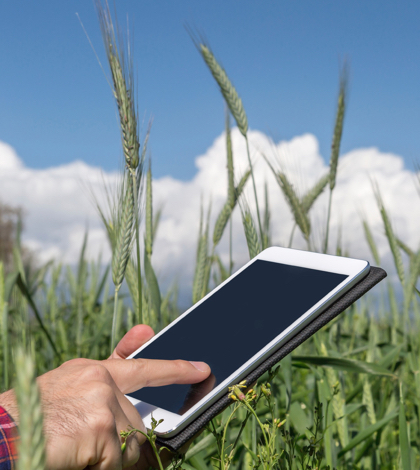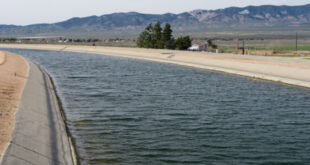As the California drought continues, farmers in the north are using technology to their advantage. Smart phone applications and programs allow farmers to accurately measure how moist their soil is and when their crops need watering. The use of technology on farmland is a win-win for everyone: farmers are able to water their crops while saving water that California desperately needs.
Although lack of water is a concern for farmers during the California drought, there is also a concern of overwatering.
“Unlike with conventional production, overwatering would be the ‘kiss of death’ in organics,” Alec Martinez, data analyst for Deardorff Family Farms, told Ventura County Star.
According to Martinez, the accuracy technology provides has been extremely beneficial. Watering technology includes measurements like soil tension, air and soil temperature and humidity.
One of the most beneficial uses of the water-saving technology: the cost factor. During the severe California drought, water prices have skyrocketed. Being more efficient with less water has allowed farmers to help save their profit margin.
Farmers who haven’t invested in water-saving technology are now doing so. They’re taking the advice of conservation groups who make water recommendations.
“Our growers really are on top of their game,” Vic Akundzadeh from the Ventura County Resource Conservation District told the Ventura County Star.
Farmers who make the recommended changes are seeing the financial benefit in more ways than one. The Conservation District will reimburse farmers up to 60 percent if they make those changes. Changes can come in an array of forms: soil moisture monitoring equipment, sprinkler heads or software.
The reason this technology has become so popular is because farmers can schedule and manage their watering without having to invest a lot in infrastructure. Instead, they rely on existing infrastructure but approach their watering with more accurate knowledge at hand.
“Before that, what growers were doing if they were not relying on soil moisture (sensors), they were on a fixed schedule or relying on someone walking the field and testing the soil,” Oleg Daugovish, strawberry and vegetable crop adviser told Ventura County Star. “That’s usually not very accurate.”
 California Water News Daily Your Source For Water News in California
California Water News Daily Your Source For Water News in California


